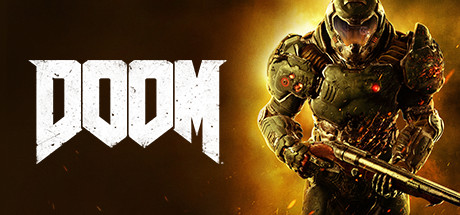Oh, I haven't really followed the game much and I don't intend to buy it for a while, so I wasn't aware of that. ^^;
I understand why many are upset, between Valorant's far more intrusive anti-cheat and the Denuvo name not inspiring much trust, but, I wonder how reactions would have been if the Valorant situation didn't happen and if it used a different but similar anti-cheat like EAC or Battleye.
Something I really don't understand is how Doom, that game that invented FPS multiplayer ended up with a section of the fanbase so
hostile towards multiplayer. I'm speaking generally here. This is what I've noticed over the past couple of years.
You go back to Doom 2016's beta a few years ago, and people were incredibly angry that Doom 2016 even had multiplayer.
Team Fortress 2, Call of Duty 1-18923, Medal of Honor 1-23773, Halo 1-3873, Depth, Evolve, Counter-Strike, Natural Selection, or about 120398120389 other FPS games to choose from. NOBODY cares about multiplayer DOOM. NOBODY. We like DOOM because of the single player challenge. The only reason...

steamcommunity.com
It's really weird to me that the game series that invented this genre has so many fans that hate it. One could quibble that the executions of MP have been sub-par, I remember Doom 3 and the controversy over its 4-player MP. But the difference in perception between Doom and Quake MP is really weird. I can only imagine the hatred that a Quake 3-style "MP-only-with-bots" Doom game would attract.
Hold the fucking boat.
Denuvo said their KERNEL LEVEL anti cheat, umm, software, is 'minimally invasive and secure'?
No further comment.
There is no further comment because they are wholly correct. Their implementation is minimally invasive, and there are no known security issues.
If you've any interest in how and why anti-cheat systems work the way they do, these two articles are a good reason. They talk about Vanguard, but the principles are common among all major anti-cheat systems.
You can contact me on twitter if you have any questions
secret.club
Something to remember is that long before Vanguard was doing this stuff, anti-cheat like FACEIT was doing the same. Valve Anti-Cheat is so ineffective that people pay subscription fees for third party anti-cheat like FACEIT, in order to play Counter Strike (relatively) unmolested by cheaters. Their FAQ similarly warns about fan controller drivers, overclocking utilities, and the like.
Here you can find the most common issues with our anti-cheat client: "Forbidden Driver" error message and how to deal with blocked drivers Compatibility with Windows 10 Insider builds NV...

support.faceit.com
As vmcall puts it, "If you make your anti-cheat solely usermode, you have
no way of guaranteeing the integrity of the kernel. Game-hackers could’ve already loaded a
vulnerable driver, gained kernel-level access and
embedded themselves into the kernel before the game application is even loaded! There would literally be no way for a usermode program to detect cheat software like this, and us game-hackers have been abusing this fact for
years."
There's a reason all anti-virus, from Windows Defender to skeevy Russian-owned stuff like AVG and Avast needs this level of access. Anti-cheat, unlike anti-virus, can't trust the user. That's really where functionality differs. Most anti-virus defers to the user. But overall the concepts are really similar.
Denuvo anti-cheat appears to be non-invasive. It doesn't seem to care what you do when you're not in a multiplayer match. Other solutions take a more hardline approach where they'll refuse to boot the game at all if something isn't kosher. Things like trainers in SP should work. (Although that will probably have to change once Invasion Mode is introduced because MP and SP become rather hard to separate at that point.)
As for the security of the driver, that just means they've had it vetted. This is fairly standard. Security vulnerabilities in anti-cheat are essentially a non-issue. It's this weird boogie-man people bring up as though the highly scrutinized and repeatedly audited security driver is going to be the problem, and not the Gigabyte RGB lighting driver. Or, you know, the Nvidia drivers that people keep installing.
There's this very, very, very silly idea that anti-cheat with kernel is magic spyware with superpowers. As vmcall puts it: "You do not need a boot-loading kernel driver to dump Google Chrome passwords, grab banking details or log your keystrokes, so this could be said about any usermode application you install on your computer. There’s a good reason why almost all spyware is running solely in usermode: it simply is not necessary to be kernel for any of this surveillance."
Vmcall also say this, regarding the anti-cheat being hacked, and the level of access being "uncalled for" in some people's opinion.
"Right, it is also possible that someone hacks Microsoft, or literally any other company that runs code on your computer. This is very odd criticism and hard to refute as it is solely hypothetical. The last sentence does bother me, though. As I’ve demonstrated in this article, this raise is definitely
not uncalled for. "
Because of this, it seems:
I think that Bethesda would do well to improve communication. For example, a lot of people are unaware that Invasion Mode is planned, and Bethesda haven't given a release timeline for it. It is wholly plausible that they are making preparations for it and testing their anti-cheat solution ahead of time in a more controlled environment. But explaining their plans would help.















